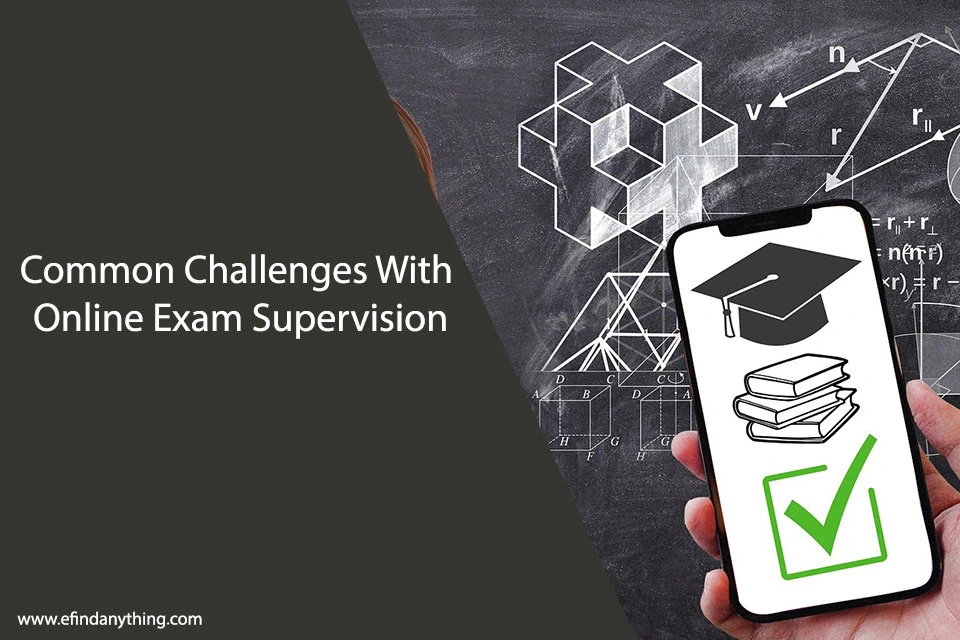Are you interested in becoming a midwife but don’t have a nursing degree? You’re not alone! Many aspiring midwives are deterred by the requirement of a nursing degree. However, there are alternative paths to becoming a midwife that do not require a nursing background.

One option is to pursue a direct-entry midwifery program. These programs are designed for individuals who do not have a nursing degree but wish to become a midwife. Direct-entry programs typically involve a combination of classroom education and hands-on clinical experience, and can take anywhere from two to four years to complete. Graduates of these programs are eligible to sit for the Certified Professional Midwife (CPM) exam, which is a recognized credential in many states.
Another option is to become a certified doula and then pursue midwifery training. Doulas provide emotional and physical support to women during childbirth, and their role can overlap with that of a midwife. By becoming a certified doula, you can gain experience in the birthing process and build a network of contacts in the midwifery community. From there, you can pursue additional midwifery training and certifications.
Understanding Midwifery
Midwifery is a profession that focuses on providing care to women during pregnancy, childbirth, and the postpartum period. Midwives are trained healthcare professionals who work with women to ensure that they have a safe and healthy pregnancy and birth experience.
In many countries, midwives are required to have a nursing degree before they can become a midwife. However, there are some countries, such as the United States, where it is possible to become a midwife without a nursing degree.
To become a midwife without a nursing degree, you will need to complete a midwifery education program. These programs are designed to provide you with the knowledge and skills you need to become a midwife. They typically include both classroom and clinical training.
During your midwifery education, you will learn about a variety of topics, including prenatal care, labor and delivery, postpartum care, newborn care, and breastfeeding. You will also learn about the legal and ethical issues that are relevant to midwifery practice.
In addition to your formal education, you will also need to become certified or licensed as a midwife in your state or country. The requirements for certification or licensure vary depending on where you live, so it is important to research the requirements in your area.
Overall, becoming a midwife without a nursing degree is possible, but it requires a significant amount of education and training. If you are passionate about providing care to women during pregnancy and childbirth, and are willing to put in the time and effort required, then a career in midwifery may be right for you.
Educational Pathways
Aspiring midwives who do not have a nursing degree have several educational pathways to choose from. These pathways include direct-entry midwifery programs, MEAC-accredited schools, and alternative bridge programs.
Direct-Entry Midwifery Programs
Direct-entry midwifery programs are designed for individuals who do not have a nursing degree but want to become a midwife. These programs typically take three to five years to complete and provide students with the knowledge and skills necessary to become a midwife.
Direct-entry midwifery programs are offered by a variety of institutions, including community colleges, vocational schools, and private midwifery schools. These programs usually include both classroom instruction and clinical experience.
MEAC-Accredited Schools
MEAC (Midwifery Education Accreditation Council)-accredited schools are institutions that have met specific educational standards set by the council. These schools offer midwifery programs that are designed for individuals who do not have a nursing degree.
MEAC-accredited schools provide students with a comprehensive education in midwifery. These programs usually take three to four years to complete and include both classroom instruction and clinical experience.
Alternative Bridge Programs
Alternative bridge programs are designed for individuals who have a background in healthcare but do not have a nursing degree. These programs allow students to earn a midwifery degree by building on their existing healthcare knowledge and skills.
Alternative bridge programs are offered by a variety of institutions, including universities and private midwifery schools. These programs usually take two to three years to complete and include both classroom instruction and clinical experience.
Overall, there are several educational pathways available for individuals who want to become a midwife without a nursing degree. Each pathway has its own unique benefits and drawbacks, so it is important to research each option carefully before making a decision.
Certification Requirements
To become a midwife without a nursing degree, there are two main certifications available: Certified Professional Midwife (CPM) and Certified Midwife (CM).
Certified Professional Midwife (CPM)
To become a CPM, you must complete a midwifery education program accredited by the Midwifery Education Accreditation Council (MEAC) and pass the North American Registry of Midwives (NARM) exam. MEAC-accredited programs require a minimum of 2 years of full-time study, including both didactic and clinical components.
In addition to completing an accredited program and passing the NARM exam, CPMs must also meet specific requirements for clinical experience and continuing education. This includes attending a minimum number of births and completing ongoing education to maintain certification.
Certified Midwife (CM)
To become a CM, you must hold a bachelor’s degree in any field and complete a graduate-level midwifery education program accredited by the Accreditation Commission for Midwifery Education (ACME). ACME-accredited programs require a minimum of 2 years of full-time study, including both didactic and clinical components.
After completing an accredited program, CMs must pass the American Midwifery Certification Board (AMCB) exam and meet specific requirements for clinical experience and continuing education to maintain certification.
Overall, becoming a midwife without a nursing degree requires completing a rigorous education program and passing a certification exam. However, with dedication and hard work, it is possible to achieve this rewarding career path.
Gaining Experience
Aspiring midwives without a nursing degree can gain experience in various ways. Here are some options to consider:
Apprenticeships and Preceptorships
Apprenticeships and preceptorships are great ways to gain hands-on experience in midwifery. These programs allow you to work directly with experienced midwives in real-life settings, providing you with valuable knowledge and skills.
To find an apprenticeship or preceptorship, you can reach out to midwifery organizations, local birth centers, or midwives in your area. You can also search online for programs that offer these opportunities.
Clinical Practice
Clinical practice is another way to gain experience in midwifery. You can work as a birth assistant or doula, providing support to women during childbirth. This will give you exposure to the midwifery field and help you develop skills such as communication, observation, and critical thinking.
You can also volunteer at a hospital or clinic that offers midwifery services. This will give you the chance to observe midwives in action and learn about the different aspects of midwifery care.
Overall, gaining experience in midwifery is essential for those without a nursing degree. By participating in apprenticeships, preceptorships, and clinical practice, you can develop the skills and knowledge needed to become a successful midwife.
Licensing and Regulations
State Licensure
To become a midwife without a nursing degree, it is important to understand the licensing requirements in your state. Each state has different regulations for midwives, and it is essential to comply with the specific requirements of your state.
In general, states require midwives to complete a midwifery education program, pass a certification exam, and obtain a license to practice. Some states may also require midwives to have a certain amount of clinical experience before they can become licensed.
It is important to research the licensing requirements in your state before pursuing a career as a midwife. You can contact your state’s board of nursing or midwifery for more information on the specific requirements.
Legal Considerations
In addition to licensing requirements, midwives must also be aware of the legal considerations involved in their practice. Midwives must adhere to state laws and regulations regarding the scope of their practice, as well as any laws related to informed consent, medical malpractice, and liability.
It is important for midwives to have a clear understanding of their legal obligations and to work closely with legal professionals to ensure that they are practicing within the bounds of the law.
Overall, becoming a midwife without a nursing degree requires a thorough understanding of the licensing and legal requirements in your state. By adhering to these requirements and staying up-to-date with the latest regulations, you can pursue a successful career as a midwife.
Career Advancement
As midwives without a nursing degree, there are several ways to advance your career and increase your knowledge and skills in the field. Here are some options to consider:
Continuing Education
Continuing education is a great way to stay up-to-date with the latest research and best practices in midwifery. There are many online courses, workshops, and conferences available that cover a wide range of topics, from prenatal care to postpartum support. Some organizations, such as the American College of Nurse-Midwives, offer continuing education credits for their members.
Specializations in Midwifery
As a midwife, you may choose to specialize in a particular area of practice. Some examples include:
- Home birth midwifery: This involves providing care to women who choose to give birth at home, rather than in a hospital or birth center.
- Water birth midwifery: This involves providing care to women who choose to give birth in a pool or tub of warm water.
- Holistic midwifery: This involves taking a whole-person approach to care, addressing not only the physical needs of the mother and baby, but also their emotional, spiritual, and social needs.
Specializing in a particular area can help you develop expertise and attract clients who are looking for a specific type of care.
Overall, there are many opportunities for midwives without a nursing degree to advance their careers and enhance their skills and knowledge. By continuing to learn and grow, we can provide the best possible care to the women and families we serve.
Professional Resources
Aspiring midwives without nursing degrees can benefit from several professional resources. These resources provide opportunities for learning, networking, and professional development.
National Organizations
There are several national organizations that support midwives and midwifery education. These organizations offer resources, advocacy, and networking opportunities for aspiring midwives without nursing degrees. Some of these organizations include:
- American College of Nurse-Midwives (ACNM)
- Midwives Alliance of North America (MANA)
- National Association of Certified Professional Midwives (NACPM)
These organizations offer various resources such as online courses, webinars, and conferences. They also provide information on state regulations and licensure requirements for midwives.
Conferences and Workshops
Attending conferences and workshops is an excellent way for aspiring midwives to gain knowledge and skills. These events provide opportunities for networking with other midwives and learning from experienced professionals. Some conferences and workshops that may be of interest include:
- Midwifery Today Conference
- MANA Conference
- ACNM Annual Meeting
These events offer workshops, lectures, and hands-on training sessions. They also provide opportunities for aspiring midwives to connect with potential mentors and learn about job opportunities.
In conclusion, aspiring midwives without nursing degrees can benefit from a variety of professional resources. National organizations and conferences/workshops offer valuable opportunities for learning, networking, and professional development.
Frequently Asked Questions
What are the steps to become a Certified Professional Midwife (CPM) without a nursing background?
To become a CPM without a nursing degree, you must first complete a midwifery education program accredited by the Midwifery Education Accreditation Council (MEAC). After completing the program, you will need to pass the North American Registry of Midwives (NARM) examination to become a CPM.
Which accredited institutions offer direct-entry midwifery programs online?
Several accredited institutions offer online direct-entry midwifery programs, including Birthwise Midwifery School, National Midwifery Institute, and Midwives College of Utah. It is essential to ensure that the program you choose is accredited by MEAC.
What are the educational requirements for a Certified Midwife (CM) in states like New York and California?
In states like New York and California, Certified Midwives (CMs) must have a graduate degree in midwifery from an accredited institution. The program must be accredited by the Accreditation Commission for Midwifery Education (ACME).
How long does it typically take to complete a midwifery education program without prior nursing experience?
The length of time it takes to complete a midwifery education program without prior nursing experience varies depending on the program. Direct-entry midwifery programs typically take around three to four years to complete, while graduate-level midwifery programs take around two to three years.
Can one practice as a midwife in states like Virginia and Illinois through non-nursing pathways, and what are the regulations?
In Virginia and Illinois, individuals can practice as midwives through non-nursing pathways, such as completing a MEAC-accredited direct-entry midwifery program and passing the NARM examination to become a CPM. It is essential to check the state regulations to ensure compliance with the laws and regulations.
What distinguishes the roles and training of a doula, a nurse-midwife, and a direct-entry midwife?
A doula provides emotional and physical support to women during childbirth and the postpartum period, while a nurse-midwife is a registered nurse with additional training in midwifery. A direct-entry midwife is a midwife who has completed a midwifery education program without prior nursing experience. Each role has its unique training and scope of practice.











